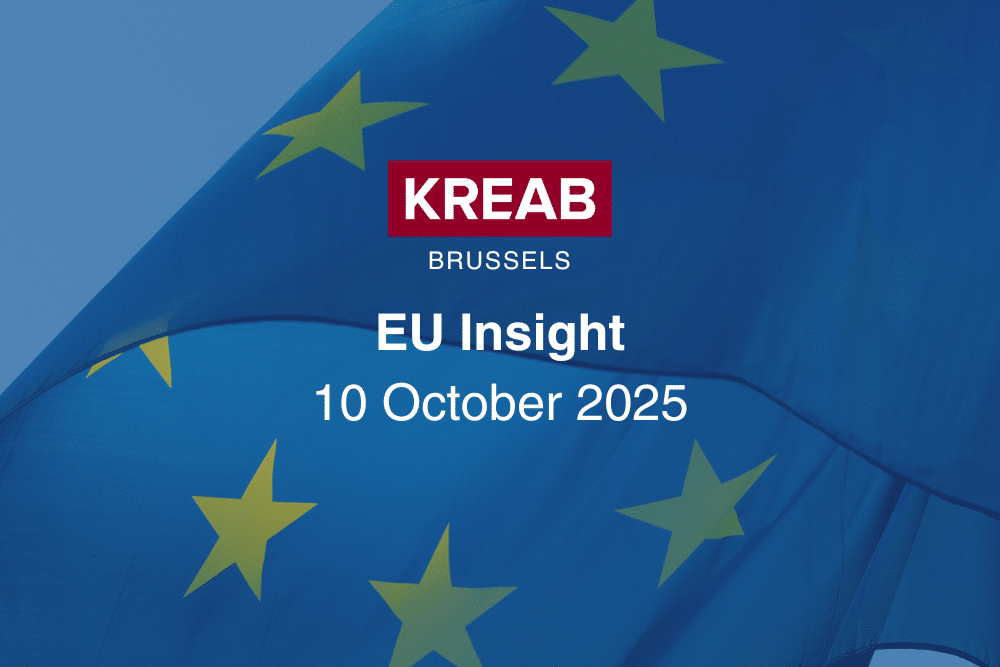
10/10/2025
EU Insight 10 October 2025
Brussels, 10 October 2025
FRENCH PRIME MINISTER RESIGNS AMID POLITICAL AND INSTITUTIONAL CRISIS
French Prime Minister Sébastien Lecornu resigned hours after naming a new government, thus departing with the record of being the shortest serving Prime Minister under the Fifth Republic. Lecornu justified his decision claiming that certain conditions were not met for him to continue as Prime Minister, in light of his failure to secure sufficient political support. The resignation of Macron’s fifth Prime Minister in less than two years plunges the country even deeper into institutional and political deadlock, aggravating economic and market concerns at national and EU levels. It remains to be seen what further steps the French President will take, as he does not appear to be considering calling early elections, either for Parliament or for the Presidency, despite increasing calls from his political opponents.
RIGHT-WING ANO PARTY WINS PARLIAMENTARY ELECTION IN CZECHIA
Andrej Babiš’s party won the parliamentary elections in the Czech Republic. With 35% of the votes, his right-wing populist ANO party failed to reach the majority. As such, the party, a founding member of Patriots for Europe, has initiated negotiations with two smaller right-leaning eurosceptic parties to form an alliance. While these election results indicate a right-wing shift in Czech politics, President Petr Pavel stated that he would not appoint any minister advocating for Czechia’s withdrawal from NATO or the EU. The election victory is considered a comeback for Babiš who, after being prime minister for four years, lost the parliamentary election in 2021 and then the presidential election in 2022.
COMMISSION PRESENTS NEW PROPOSAL TO SAFEGUARD EU STEEL INDUSTRY
Invoking the need to safeguard the EU steel industry against dumping, the Commission has presented a proposal which, if approved, will replace the expiring Steel Safeguard Measure. To tackle what it alleges are unfair impacts of global overcapacity, the Commission’s proposal aims to limit tariff-free import volumes, increase the level of out-of-quota duty, and strengthen traceability. Responding to stakeholders’ requests, the measure is meant to shield EU jobs and support the efforts to decarbonise the industry. The Commission assures the proposal is compliant with the WTO rules and proposes to offer country-specific allocations upon request. The proposal, says Commission Executive Vice-President Séjourné, is not a destination, but a starting point towards sovereign decarbonised European steel.
COMMISSION SETS NEW RULES TO PROTECT FARMERS UNDER THE MERCOSUR DEAL
The Commission has proposed new rules to give EU farmers stronger protections under the EU–Mercosur deal. The measures include the monitoring of sensitive products every six months, such as meat, rice, eggs, ethanol and sugar. In addition, the proposal sets clear rules for action in case import prices fall by 10% or volumes rise by 10% versus last year, the EU could temporarily suspend lower tariffs. In urgent cases, provisional safeguard measures could be activated within 21 days of a Member State’s request, with investigations aiming to finish in four months, compared to the 12 months anticipated under the trade deal. The proposal will now go to the Parliament and the Council for negotiations, with the aim to give farmers more certainty and quicker responses to market shocks.
ISRAEL AND HAMAS AGREE ON FIRST PHASE OF GAZA PEACE PLAN
The Israeli Government and Hamas have agreed on the first phase of a peace plan to end the war in Gaza. This first stage encompasses the release of remaining Israeli hostages, in exchange for Palestinian prisoners. Following this exchange, Israel has agreed to move back troops from current frontlines, and open access to the enclave for a surge of international aid needed to halt widespread starvation. This precedes a more complex second phase which could include the disarmament of Hamas, withdrawal of Israeli troops from the territory, and arrival of an International Stabilisation Force. Like many national European leaders, Commission President Ursula von der Leyen and HR/VP Kaja Kallas welcomed the development, and assured the EU’s continued support for the swift and safe delivery of humanitarian aid into Gaza.
COMING UP NEXT WEEK
- 13-14 October: Justice and Home Affairs Council. On the agenda: Rule of law, fight against Russian impunity, Eurojust.
- 13-14 October: Informal meeting of trade ministers.
- 15 October: Foreign Affairs Council. On the agenda: Defence readiness.
-
17 October: Employment, Social Policy, Health and Consumer Affairs Council. On the agenda: Violence against women and domestic violence, LGBTIQ, social inclusion of persons with disabilities, disability rights.

Did you like this article? Contact us to hear more about Kreab Brussels’ practice and services.

